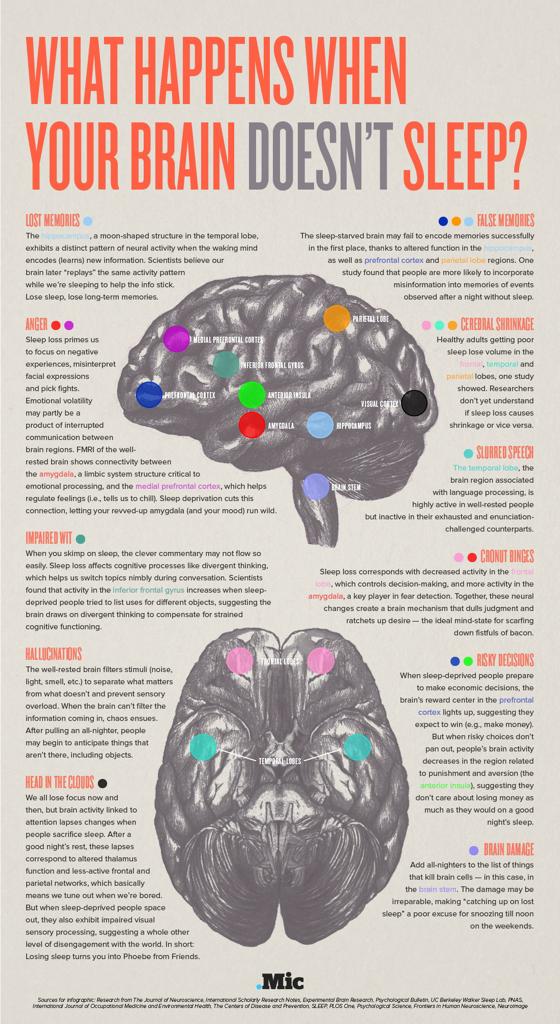Insomnia is not just terrible for your sleep cycle, it could be bad news when you’re older. A recent study has shown that people who don’t get enough rest at night are more likely to develop dementia in their late 70s and early 80’s!
Sleep problems and disorders are relatively common among seniors. Many individuals with a neurodegenerative disease complain of experiencing insomnia, excessive daytime sleepiness, or abnormal motor activity while they are sleeping.
Research shows that adults should be sleeping 7 or more hours per night on a regular basis, give or take an hour depending on the individual. The sleeping brain uses almost as much energy as the awake brain. Certain hormones are only secreted while we sleep, problems can be solved during sleep, and memories are consolidated. Although people find ways and excuses for functioning on less sleep, there is really no substitute for sleep itself. The brain needs this time to clear neurotoxins and maintain optimal health
Neurodegenerative diseases such as Alzheimer’s and Parkinson’s disease can damage the regions of the brain that control sleep, making insomnia and disrupted sleep two prominent features of these disorders. Sleep disruptions can also be a side effect of medications.
Circadian rhythm disorders can also contribute to sleep disruption and the development of sleep disorders. People with Alzheimer’s disease and circadian rhythm disorders tend to have prolonged wakefulness at night and sleepiness and naps during the day. Bright light therapy can be used to help synchronize the person’s internal clock to help improve sleep patterns and quality.
REM sleep behaviour disorder is often diagnosed in those with Alzheimer’s, Parkinson’s, and Lewy Body disease. Normally when we enter REM sleep, dreaming begins and the body is paralyzed so that we do not act out our dreams. For those who have REM sleep behaviour disorder, dreaming is disrupted, and paralysis does not occur so they act out their dreams. Safety Precautions should be implemented if someone is experiencing REM sleep behaviour disorder because they may get out of bed, walk around, thrash or flail their limbs; some people even eat in their sleep. Here are some safety precautions to consider when dealing with REM sleep behaviour disorder.
- Remove furniture with sharp edges and other sharp objects from the sleeping area
- Remove any weapons that may be stored in or near the sleeping area
- Move the bed away from the windows
- Use heavy curtains or drapes
- Place the mattress on the floor of the bedroom
- Put soft padding on any hard surfaces near the bed
- Sleep in separate beds to avoid injury
- Consider adding a bed alarm to wake up the person or partner
Caring for someone with sleep disruptions or disorders affects the quality and quantity of sleep that the caregiver is getting nightly. If caregivers do not get enough sleep there is a high chance of burnout and health decline.
Remember these basic tips to promote healthy sleep hygiene habits!
- Pick a schedule and stick to it
- Stay active during the day
- Get some Vitamin D
- Don’t drink anything right before bed
- Take a bath before bed
- Convert your bedroom into a sleep sanctuary
For more reading on this topic, check out the three sources below for relevant reading.
- Why Sleep Apnea Can Cause Memory Problems Earlier in Life
- Identical signs of brain damage in sleep apnea and Alzheimer’s
- Sleep APnea and The Risk of Alzheimer’s Disease


